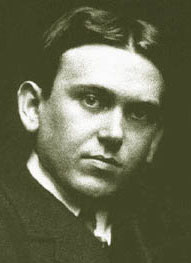Chrestomathy (/krÉ›sˈtÉ'məθi/ kres-TOM-É™-thee; from the Greek χÏηστομάθεια desire of learning = χÏήστηςi> user + mathein to learn) is a collection of choice literary passages, used especially as an aid in learning a subject.
In philology or in the study of literature, it is a type of reader which presents a sequence of example texts, selected to demonstrate the development of language or literary style. It is different from an anthology because of its didactic purpose.
Examples

- Bernhard Dorn, A Chrestomathy of the Pushtu or Afghan language, St. Petersburg: 1847
- Mencken, H. L., A Mencken Chrestomathy, New York: Alfred P. Knopf, 1949
- Zamenhof, L. L., Fundamenta Krestomatio de la Lingvo Esperanto, Paris: Hachette, 1903
- Edward Ullendorff, A Tigrinya Chrestomathy, Stuttgart: Steiner Werlag Wiesbaden GmbH, 1985.
- Bilingual Greek-Latin Grammar, by Georgios Dimitriou, 1785, that contained personal observations, Epistles and Maxims, as well as biographies of notable men.
See also

- Anthology
- Use of the Lord's Prayer as a language comparison tool